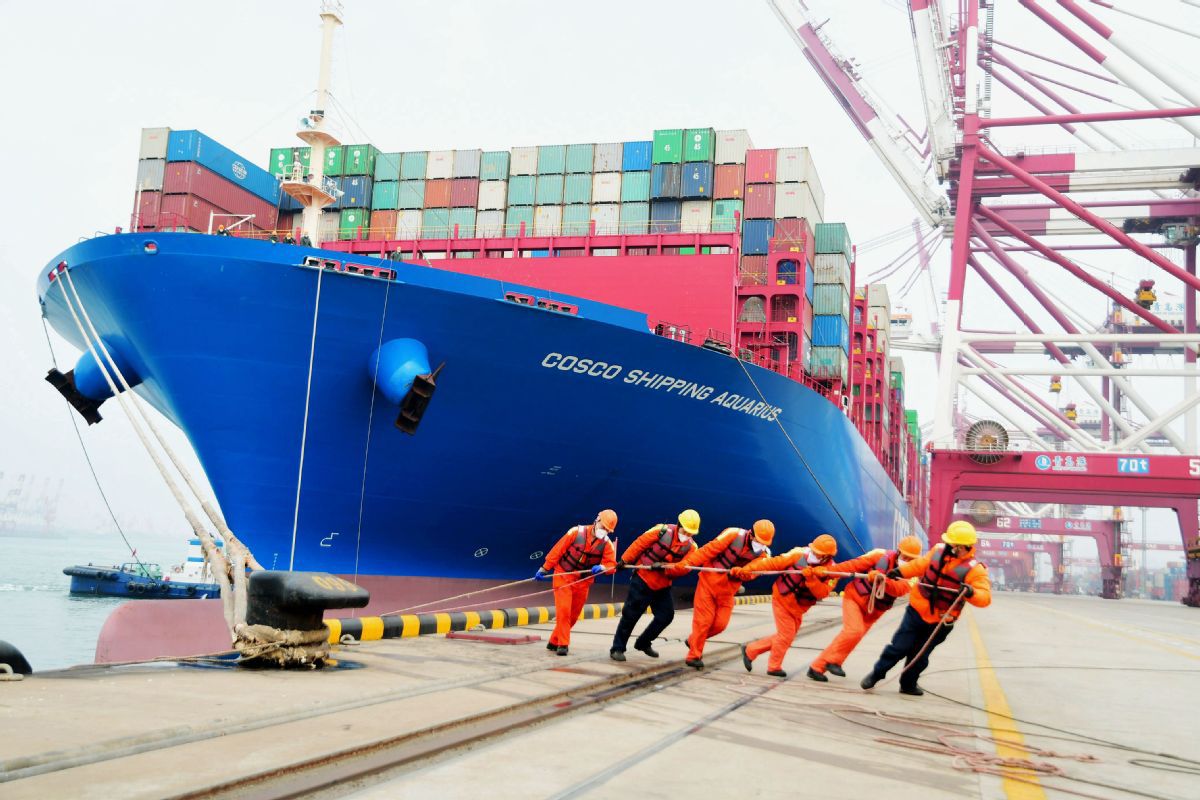Moves to help export firms ramp up work


China has released measures to help firms that export their goods resume production and stabilize trade growth by mitigating the impact of the novel coronavirus pneumonia outbreak on the economy, the Ministry of Commerce said in a statement on Tuesday.
The ministry made the announcement amid efforts by Chinese companies to quickly resume production to fulfill overseas orders while observing proper epidemic precautionary measures.
The government will simplify foreign trade management procedures and offer legal services to help Chinese companies that export their goods cope with potential risks and promote the development of major projects related to the Belt and Road Initiative, the document said.
The ministry urged domestic companies to rely on the protection of trade promotion agencies and legal advice services to deal with foreign trade restrictions from concerns about the spread of the epidemic. It said China respects the authority and professional opinion of the World Health Organization and opposes overreaction and imposition of trade restrictions by foreign governments.
The move will offer companies, especially small and medium-sized enterprises, extra help to minimize damage, said Yan Yun, deputy director of the commercial certification service center of the China Council for the Promotion of International Trade.
"Manufacturers are major contributors to job creation. Supporting these businesses will help support employment and protect economic vitality," said Yan, adding that quickly resuming production while taking proper epidemic precautions can save markets.
Over 50 percent of large companies in key export provinces and municipalities — such as Guangdong and Jiangsu provinces and Shanghai — have restarted production, Tang Shemin, an official at the National Development and Reform Commission, said on Wednesday.
Large enterprises are ahead of SMEs in resuming work, and upstream players and capital- and technology-intensive companies have reported a faster resumption, Tang said at a news conference.
Eager to restore their earning ability, manufacturers that export from Zhejiang province's Hangzhou, Ningbo and Jiaxing have already chartered airplane, train and bus services to transport the workers from inland provinces, such as Sichuan and Guizhou, to factories so production can resume.
"Our clients showed concern when the novel coronavirus broke out and spread across China," said Chen Liu, who owns a company in Hangzhou that exports its fireproof materials to Australia, Europe and Africa. "But they trust China's mature supply chain and are mostly positive about the upcoming recovery and production rebound here."
She said the biggest problems are stagnating logistics and the lack of workers and raw materials.
"We are negotiating with clients to postpone the day of delivery and are trying to find affordable ways to accelerate the process" such as shipping by air instead, Chen said.
Although foreign trade has been affected by the virus, major exporting provinces — such as Jiangsu, Zhe-jiang, Guangdong and Fujian — have not been severely affected by the epidemic, said Chen Wenling, chief economist at Beijing-based China Center for International Economic Exchanges.
The epidemic is expected to be controlled before the end of February in most provinces and regions, and both trade and consumption will rebound soon, she added.
Some Chinese companies are continuing to expand in overseas markets. CRRC Qiqihar Co, a subsidiary of China Railway Rolling Stock Corp, the country's biggest train manufacturer, will ship 134 coal hopper cars to Australia on Thursday.
China International Marine Containers (Group) announced on Tuesday that its subsidiary Shen-zhen CIMC-TianDa Airport Support Co sealed a 70 million yuan ($10 million) deal to supply 18 boarding bridges and related equipment to Clark International Airport in the Philippines.
Ouyang Shijia contributed to this story.
Contact the writers at [email protected]




































